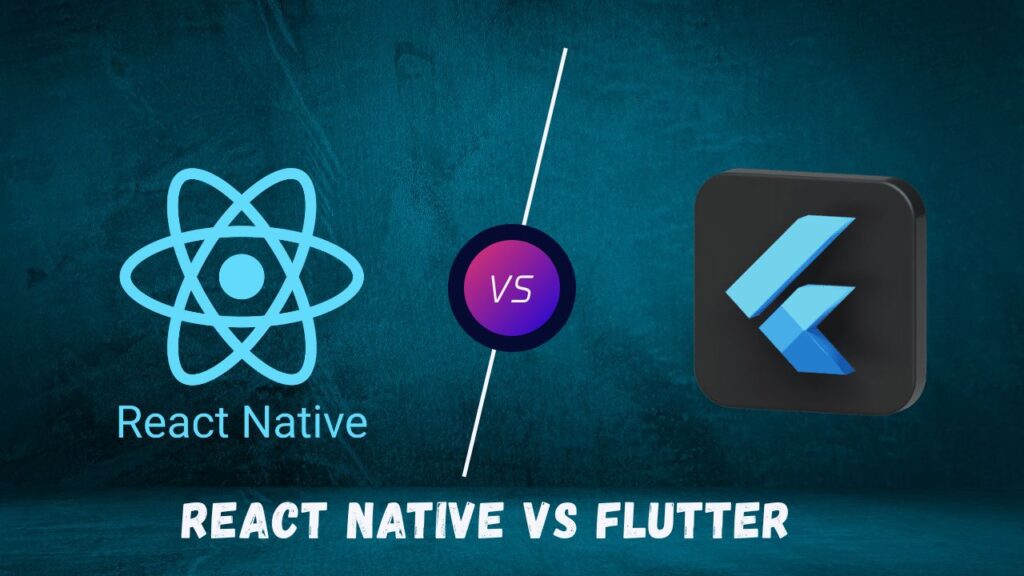React Native vs Flutter in 2025: Which Framework Should You Choose?
Choosing the right framework for mobile app development is always a crucial decision. In 2025, React Native vs Flutter continues to be one of the most debated topics among developers, startups, and businesses. Both frameworks are powerful, widely adopted, and constantly evolving, making it harder for teams to decide which one aligns with their goals.
In this blog, we’ll compare React Native vs Flutter in 2025, explore their strengths, weaknesses, community support, performance, and future outlook to help you make an informed choice.
What is React Native?
React Native, introduced by Meta (formerly Facebook), is a framework that lets developers create apps for multiple platforms using JavaScript and the React library. It’s known for its ability to deliver near-native performance while reusing a significant portion of code across Android and iOS. In 2025, React Native continues to thrive thanks to its strong ecosystem and widespread adoption.
Key Features of React Native:
1. Large developer community and ecosystem.
2. Code sharing across platforms.
3. Rich library support and third-party integrations.
4. Backed by Meta with continuous updates.
Read more about React Native on the official website.
What is Flutter?
Flutter, developed by Google, is a UI framework that enables developers to create fully compiled applications for multiple platforms using a single shared codebase.It uses the Dart programming language and provides a rich set of pre-designed widgets, making it stand out for its beautiful UI capabilities. In 2025, Flutter has become a favorite for startups and enterprises aiming for visually polished applications.
Key Features of Flutter:
1. One shared codebase that works across Android, iOS, web, and desktop platforms.
2. Fast rendering with Skia graphics engine.
3. Beautiful, customizable UI components.
4. Strong community and Google’s support.
Explore Flutter on Google’s official site.
React Native vs Flutter in 2025: Head-to-Head Comparison
Feature | React Native | Flutter |
Programming Language | JavaScript (React) | Dart |
Performance | Near-native, may rely on bridges | Faster due to compiled nature |
UI/UX | Relies on native components | Customizable widgets for beautiful UI |
Community Support | Large, mature ecosystem | Growing fast with Google’s backing |
Learning Curve | Easier if you know JavaScript | Requires learning Dart |
Platform Coverage | Android & iOS | Android, iOS, web, desktop |
Advantages of React Native in 2025
1. Easy to learn for JavaScript developers.
2. Mature ecosystem with plenty of libraries.
3. Strong job market and demand.
4. Large pool of talent and resources.
Advantages of Flutter in 2025
1. Better performance due to direct compilation.
2. Consistent UI across multiple platforms.
3. Active community and faster updates.
4. Ideal for visually rich apps.
Which Framework Should You Choose in 2025?
The choice between React Native and Flutter in 2025 depends on your project goals:
1. Choose React Native if: you have a team familiar with JavaScript, need strong third-party library support, and want faster hiring.
2. Choose Flutter if: you want stunning UIs, aim for multi-platform support (including web and desktop), and prefer top-notch performance.
For example, if you’re building an e-commerce app with many integrations, React Native might be more suitable. But if you’re designing a fintech app with high UI demands, Flutter could be the better choice.
The Future of React Native vs. Flutter in 2025 and Beyond
Both frameworks are here to stay. Meta continues investing in React Native with performance improvements and architectural changes, while Google’s commitment to Flutter ensures it keeps growing beyond mobile into web and desktop.
Ultimately, the debate of React Native vs. Flutter in 2025 isn’t about which is “better” overall, but which fits your business needs, team skills, and long-term vision.
Helpful External Resources
1. React Native Official Docs
2. Flutter Official Docs
3. Dart Programming Language
Conclusion
In the ongoing battle of React Native vs. Flutter in 2025, there’s no one-size-fits-all answer. Both frameworks bring unique strengths to the table. Your choice should depend on your project’s requirements, your team’s expertise, and your future scalability plans.
By understanding the pros and cons of each framework, you’ll be better equipped to make the right decision for your app development journey.
Check out our latest article on Programming.
1. Python vs JavaScript vs Java: Which to Learn First in 2025?

